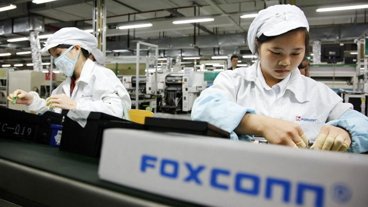Microsoft exec says tablets like Apple's iPad may be just a fad
Craig Mundie made the comments in Sydney at a lunch held by the Committee for Economic Development of Australia. According to The Sydney Morning Herald, Mundie said there is a question as to whether tablets like Apple's iPad will "remain with us or not."
"Today you can see tablets and pads and other things that are starting to live in the space in between (a PC and a smartphone)," Mundie said. "Personally, I don't know whether that space will be a persistent one or not."
While he believes most computing will be done on phones in the future, Mundie believes the successor to the traditional desktop PC is "the room." He envisions a future where a person's at-home computer won't be a box on a desk, but something that users can interact with wherever they are in a room, powered by a device like Microsoft's controller-free gaming controller, the Kinect.
Mundie's comments on devices like the iPad may offer some insight as to how Microsoft internally views the importance of the touchscreen tablet market. In 2010, Microsoft pushed Windows 7-powered "slate PCs," but the most prominent device in that category, released by HP, failed to generate much interest.
While Microsoft has struggled in the tablet market, Apple found great success in 2010, selling 15 million of the first-generation iPad. Sales are only expected to grow this year, as the newly released iPad 2 is still drawing lines as Apple struggles to keep up with demand.
The comments from Microsoft's Mundie echo some of what Apple Chief Executive Steve Jobs said in an interview last year. Jobs said he believes that smartphones and other "post-PC" mobile devices will eventually negate the need for a traditional computer for most users.
But where Jobs and Mundie differ is on the future success of the iPad: Jobs believes the iPad is leading the transition to the "uncomfortable" post-PC era of computing.
Last year, Jobs compared the PC market to the U.S. automobile industry, noting that most vehicles in America at first were trucks, because they were driven by farmers. But as cars became more popular with the growth of cities, and features like power steering and automatic transmission were added, the truck came to represent a smaller number of vehicles on the road. "PCs are going to be like trucks," he said.
Microsoft Chief Executive Steve Ballmer later fired back with a different spin on Jobs' analogy: "There may be a reason they call them Mack Trucks," Ballmer said, referring to Apple's Mac line of computers. "But Windows machines are not going to be trucks."
 Katie Marsal
Katie Marsal













 Amber Neely
Amber Neely
 Thomas Sibilly
Thomas Sibilly
 AppleInsider Staff
AppleInsider Staff
 William Gallagher
William Gallagher
 Malcolm Owen
Malcolm Owen
 Christine McKee
Christine McKee










196 Comments
Translation: we're at least distantly aware of the fact that we don't have a viable tablet strategy, so we're hoping the market evolves towards what we do have, instead of us having to move towards the market.
Also, we'll undoubtably be in charge of some indeterminate future where our vague notions of how "people" want to "interact" with "technology" are blissfully free of irritating details like actual shipping product. We seem to have sold a lot Kinects, so god willing everyone will use that. For, um, computing stuff.
Sorry but the need for something bigger that 3.5, 4, and 4.3 inch screen automatically makes you wrong MS. Come out with a tablet and then you can talk.
Another dumb set of comment from a foolish MS exec. They don't get the market so they just hope they can figure something out. The Kinect is cool, but it's not going to be practical to have the Room be the computer. Not like they are talking about. I'm not sure he even knows what he is talking about.
And this mentality is why M$ never has been and never will be innovative. They consistently look back rather than forward. They copy rather than create. Windows PCs might still dominate but they will never inspire. Big ideas like "the room is the computer" need a roadmap for taking you there and Apple has a clear roadmap. The iPad and future iterations may be temporary but then, so are smartphones and desktop computers for that matter. There is always something more innovative coming down the pipes. If tablets are still a big part of the tech landscape in 10 years, I will be disappointed. The point is, Apple's iPad, Apple TV, etc. are all part of a greater strategy, and that strategy will evolve over time. The iPad doesn't need to be the future... it just needs to take us there.
Are they hiring these Microsoft executives to be highly paid navel gazers?
Even if the iPad turned out to be a fad, they're making a hell of a business around it, AND they've got the high-end smartphone market cornered. Microsoft, you're a ship of fools sinking fast.